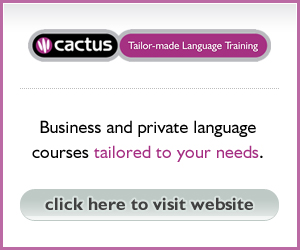Responsible Tourism
Cactus would like to thank WWF for letting us include the following advice and information about responsible tourism - tourism that is beneficial to tourists and local people without harming the environment.
Tourism is the biggest industry in the world, with massive impacts on people and nature. Below are beginner, intermediate and advanced ways you can make a difference on holiday.
Make a Difference - Beginner Ways
Planning your holiday
- Go on holiday during the off-peak period to prevent over straining resources - you’ll also avoid the crowds.
- Avoid taking things on holiday that you will throw away
Encourage others to be environmentally responsible:
- Ask your travel agent or tour operator what they are doing to be environmentally responsible
- Use facilities and trips run by local people whenever possible
- When on holiday let the local people know that you appreciate pristine nature being there, so that they see its economic value
Save energy, reduce waste and pollution:
- Dispose of any rubbish responsibly - it can be hazardous to wildlife
- Turn off all lights, taps and air conditioning when you leave hotel rooms
- Re-use towels and participate in any green schemes run by hotels
- Dispose of sanitary waste properly. Don’t flush cotton buds, condoms, tampons and plastics down the toilet - or you might just find them on the beach next time you visit
- Take all rubbish home from the beach - turtles are often killed by plastic bags they’ve mistaken for jellyfish and many items take years to degrade as well as being dangerous
Respect nature:
- Don’t participate in hunting or fishing unless it can be shown to be part of an effective management plan.
- Don’t be tempted to touch wildlife and disturb habitats whether on land, at the coast or under water
- Don’t eat shark’s fin soup or any dishes you suspect of containing endangered species
- Be careful what you choose to bring home as a holiday souvenir. Many species from coral and conch shells to elephants and alligators are endangered because they are killed for curios or souvenirs. It is illegal to import over 800 species into the UK and over 25,000 more require a special licence
- Boats and jet-skis create noise and chemical pollution which is disturbing to wildlife - don’t keep the engine running unnecessarily
- If you are sailing, surfing or windsurfing keep a distance of at least 100m from seal resting and bird nesting sites to avoid disturbing them
Make a Difference - Intermediate Ways
Planning your holiday
- Find out about your destination before you go on holiday - it may be an environmentally sensitive area. Doing this will also ensure you are informed of what to see and any local customs
- If you are concerned about anywhere you have been to on holiday, tell ABTA or contact WWF
Make a Difference - Advanced Ways
Save energy, reduce waste and pollution
- Don’t travel by air if you can avoid it - air travel uses up large amounts of fossil fuels and creates greenhouse gases.
